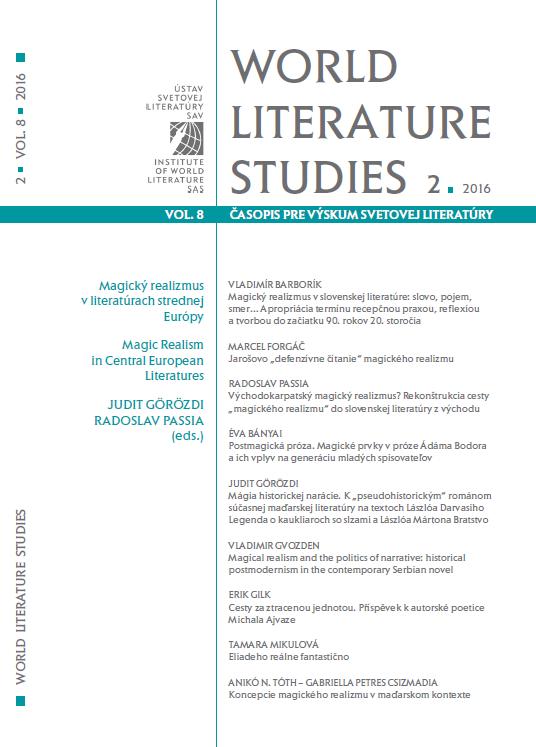Koncepcie magického realizmu v maďarskom kontexte
Conceptions of magical realism in the Hungarian context
Author(s): Anikó N. Tóth, Gabriella Petres CsizmadiaSubject(s): Language and Literature Studies
Published by: Ústav svetovej literatúry, Slovenská akadémia vied
Keywords: Magical realism; Post-colonial literature; Way of writing; Rhetorical device; Minority literatures
Summary/Abstract: In our study we present the different interpretations of magical realism that have been outli¬ned most prominently in Hungarian reception history in recent decades. As a starting point, Tamás Bényei’s perception, which is different from the well-known conceptualizations related to the Hispanic American cultural region and identity, is discussed. According to him, magi¬cal realism, apart from its connection to post-colonial literature, can be understood as a way of writing and as a rhetorical device. As opposed to this approach, the second perception, drawing on the international trends of understanding magical realism as cultural industry (Volek), and based on the investigation of the developmental processes of Hungarian prose, implies continuity between the anecdotal tradition of the 19th century and recent discourse-forming strategies (Papp). Highlighting the aspect of hybridity, the second interpretation, with its post-colonial theoretical background, predominantly examines literatures written in Hungarian beyond Hungary’s borders as well as other minority literatures (Papp).
Journal: World Literature Studies
- Issue Year: 8/2016
- Issue No: 2
- Page Range: 97-103
- Page Count: 7
- Language: Slovak

